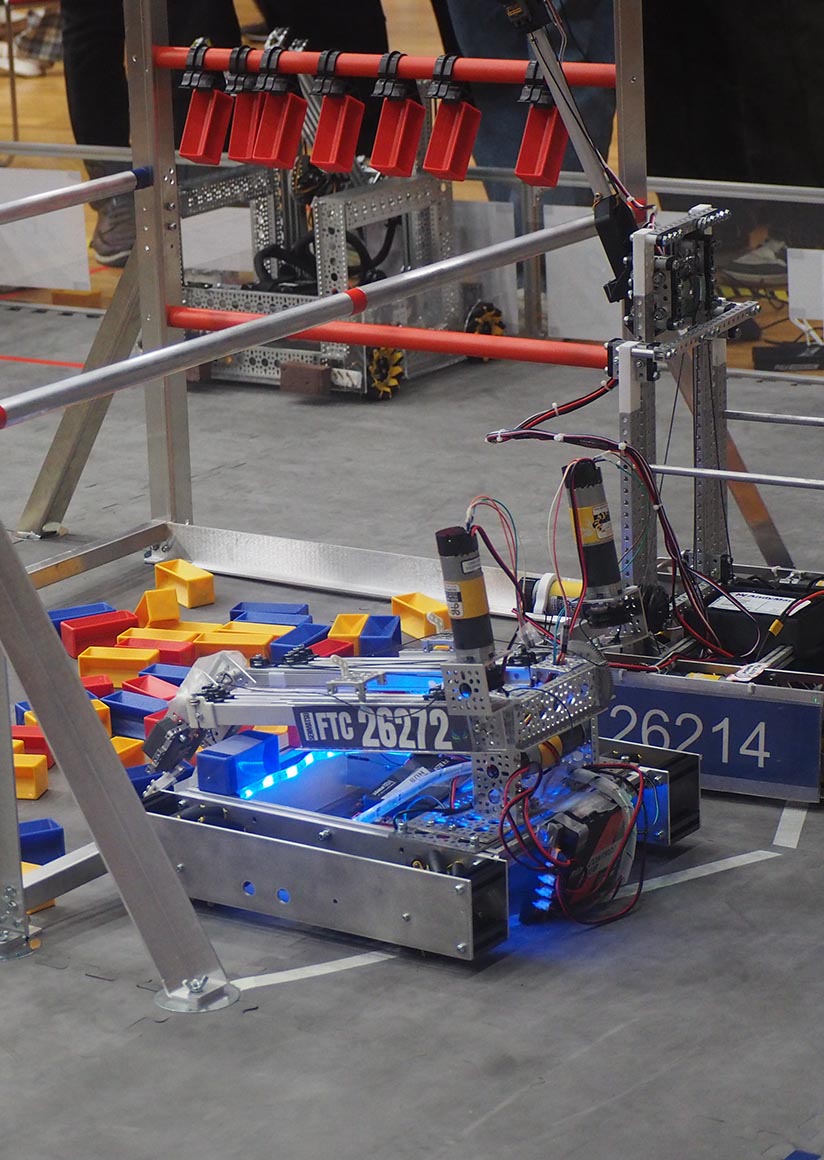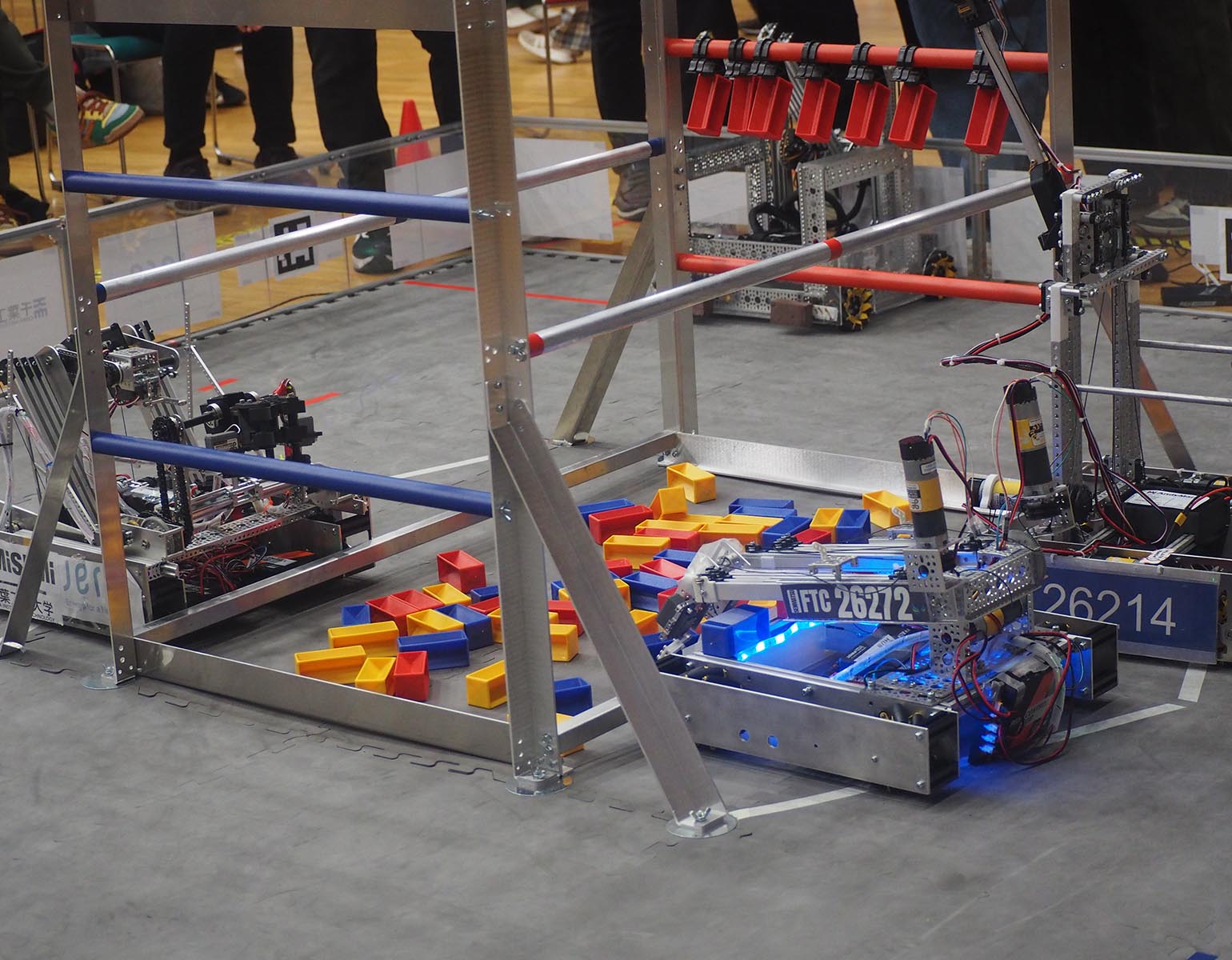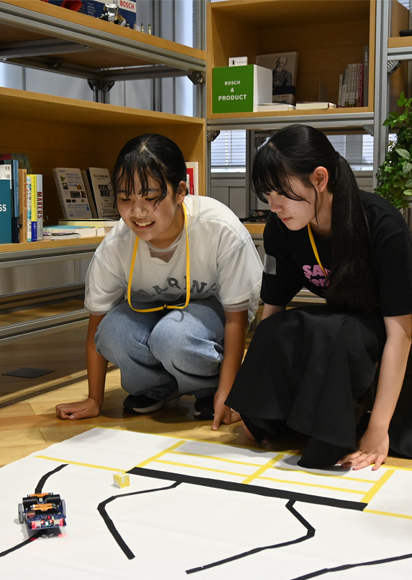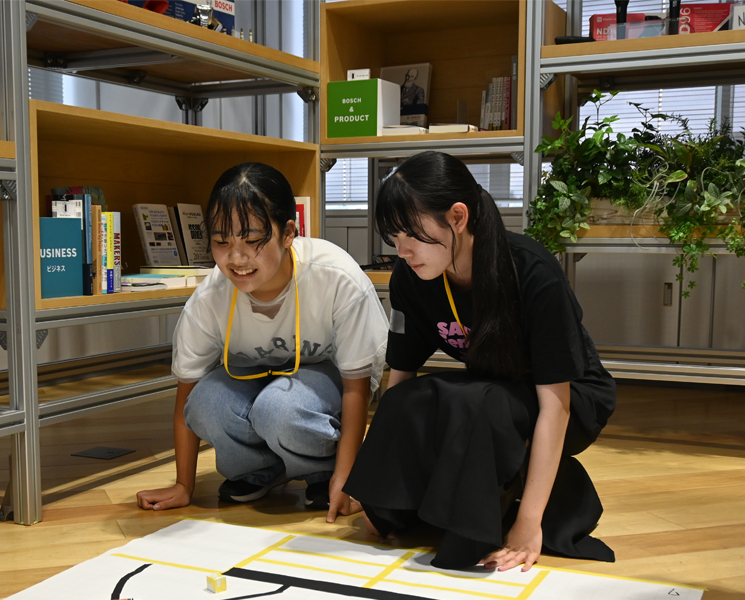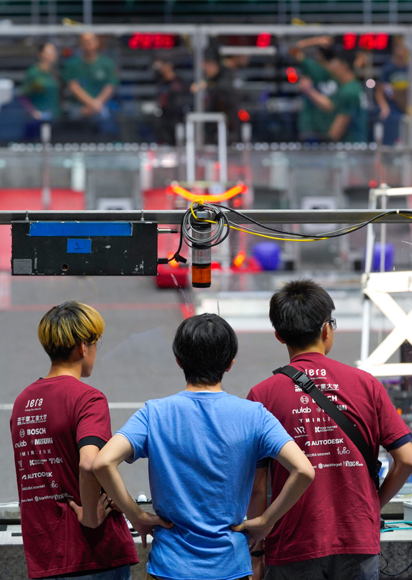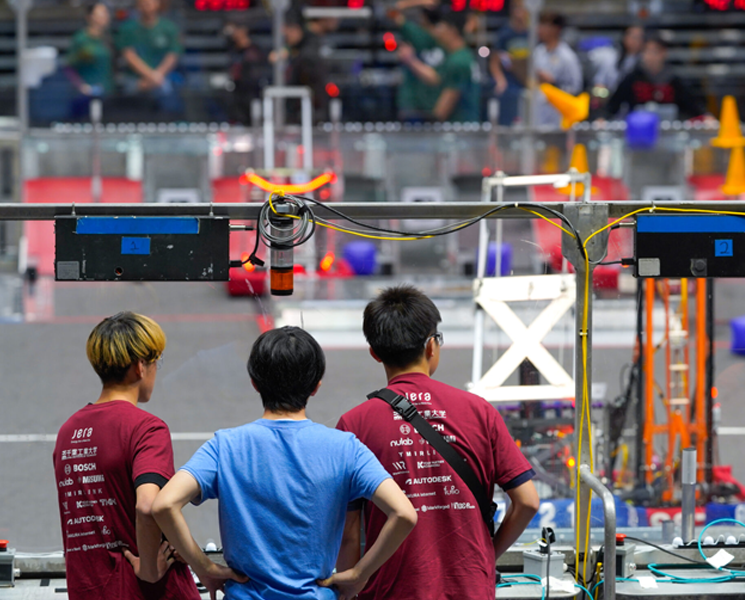The world can be more interesting.
Today’s society is rapidly changing and requires a wide variety of skills and knowledge. While learning in school provides basic knowledge, there are challenges and opportunities that cannot be met by school alone. Until now, Japanese education has emphasized the importance of being the same as others and has not fully respected individuality.
SAKURA Tempesta provides an education that develops the next generation of leaders and innovators by utilizing STEAM (Science – Science, Technology – Technology, Engineering – Engineering, Arts – Arts, Mathematics – Mathematics) and business knowledge. Our mission is to ensure that young people enjoy change, challenge new possibilities, and are not afraid to learn from their mistakes.
Japanese society where few people start something new
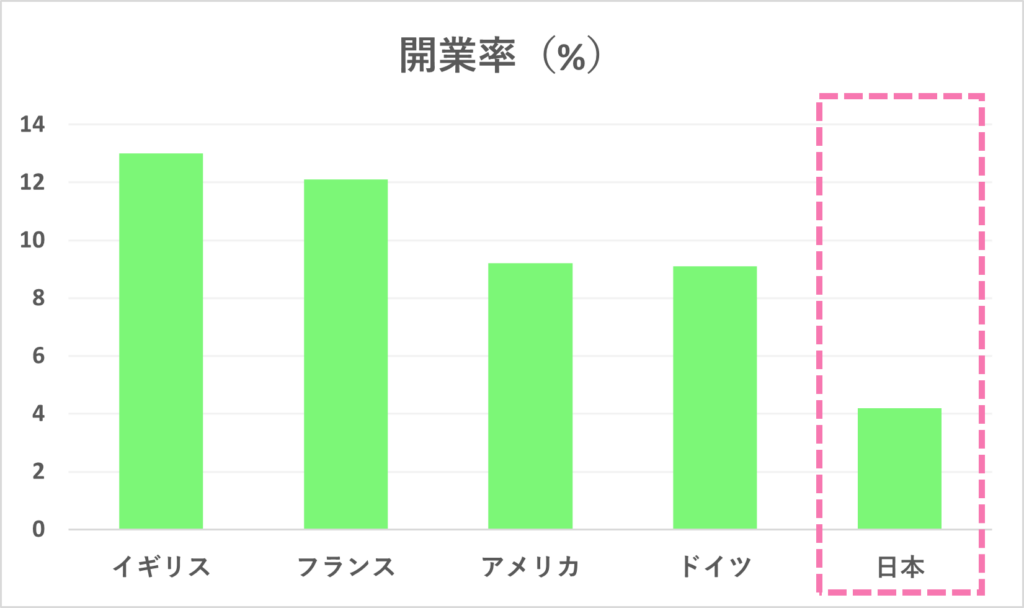
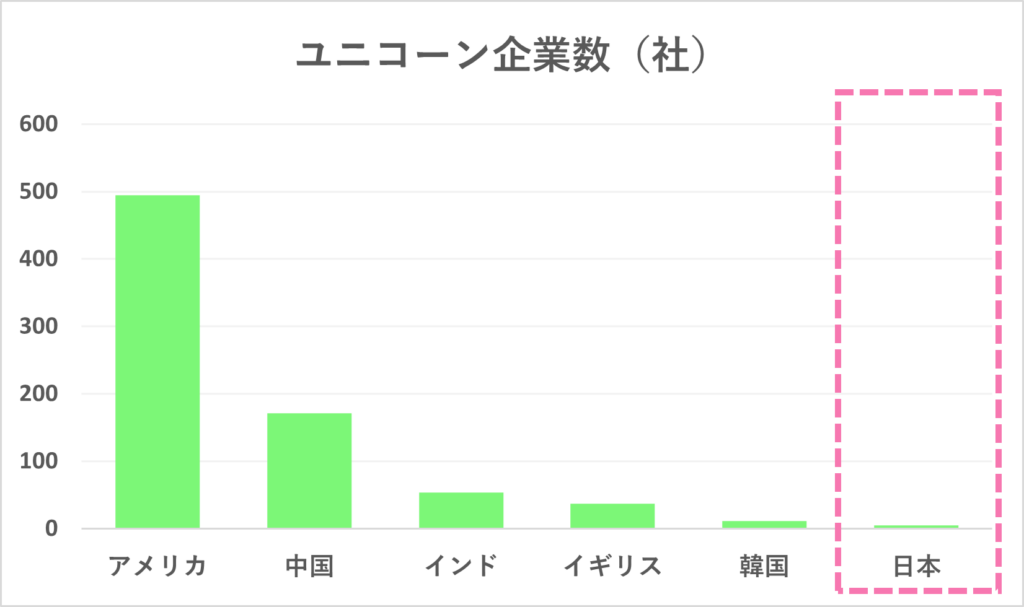
(Source) Processed and prepared by SAKURA Tempesta, a nonprofit organization, based on “Science and Technology Indicators 2022,” National Institute of Science and Technology Policy, Ministry of Education, Culture, Sports, Science and Technology.
According to a report by the Ministry of Education, Culture, Sports, Science and Technology (MEXT), Japan’s business start-up rate is lower than that of other countries, and several factors contribute to this situation. Among them are Japan’s uniquely conservative atmosphere and deep-seated preference for stability. Japanese society tends to emphasize tradition and stability, and there is a fear of failure and an avoidance of new challenges. This conservative atmosphere may inhibit the development of entrepreneurial spirit and the creation of new businesses.
It is also noted that the number of unicorn companies is extremely small. While the U.S. has 495 unicorn companies, Japan has only 5, an extreme difference. This difference is significant even when the population ratio is taken into account, indicating that Japan’s business environment is not conducive to fostering innovative startups. This means that even if a startup breaks out of the conservative atmosphere and starts a new business, it is difficult for it to show significant results.
Under these circumstances, it can be seen that Japanese business culture and society are afraid of change and risk, and are stuck in traditional values and customs. This conservative tendency may be an obstacle to the creation and growth of new businesses.
Pessimistic youth
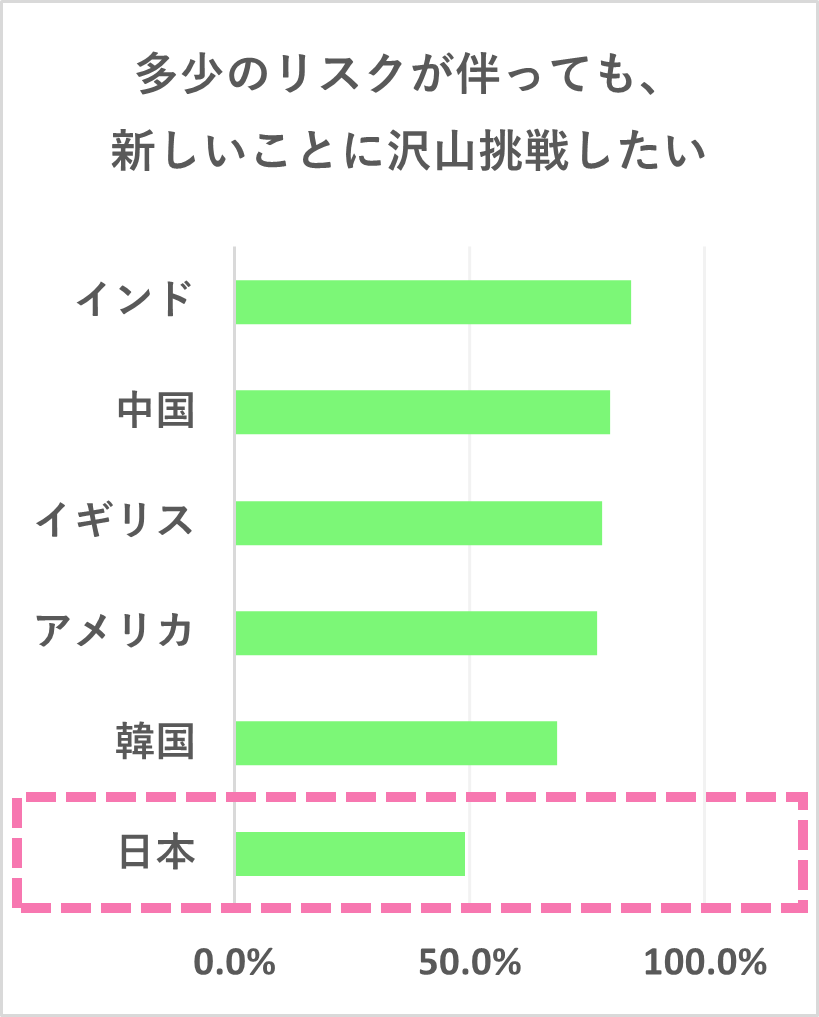
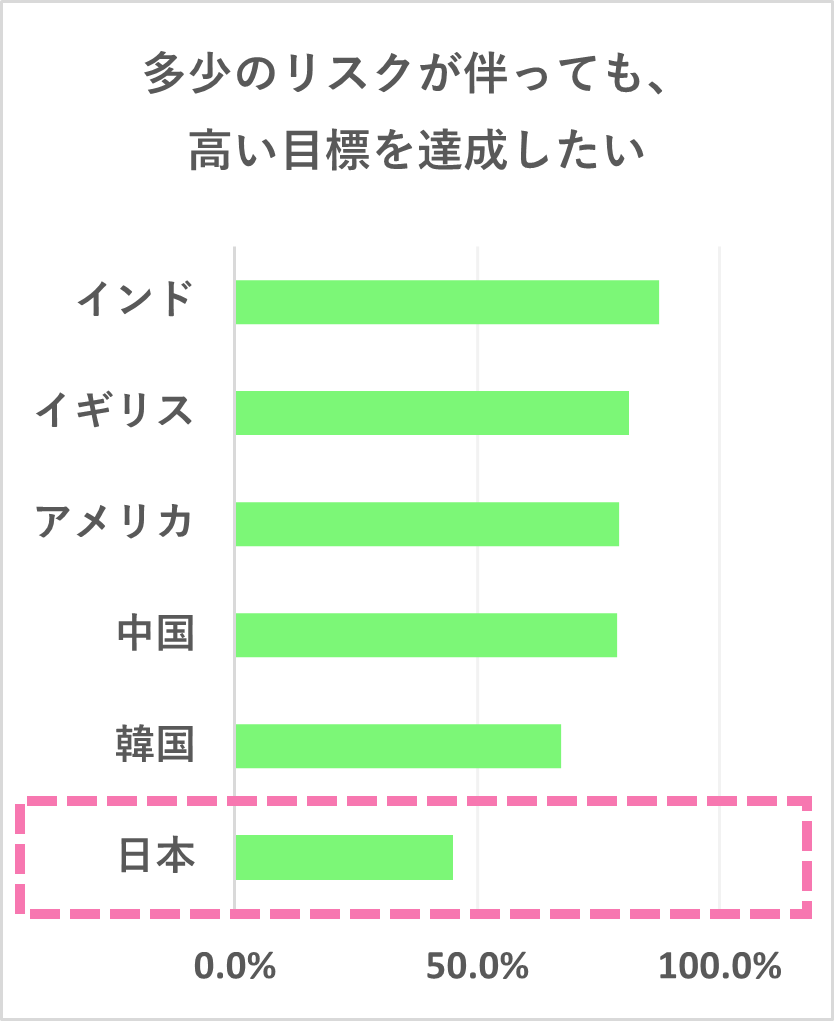
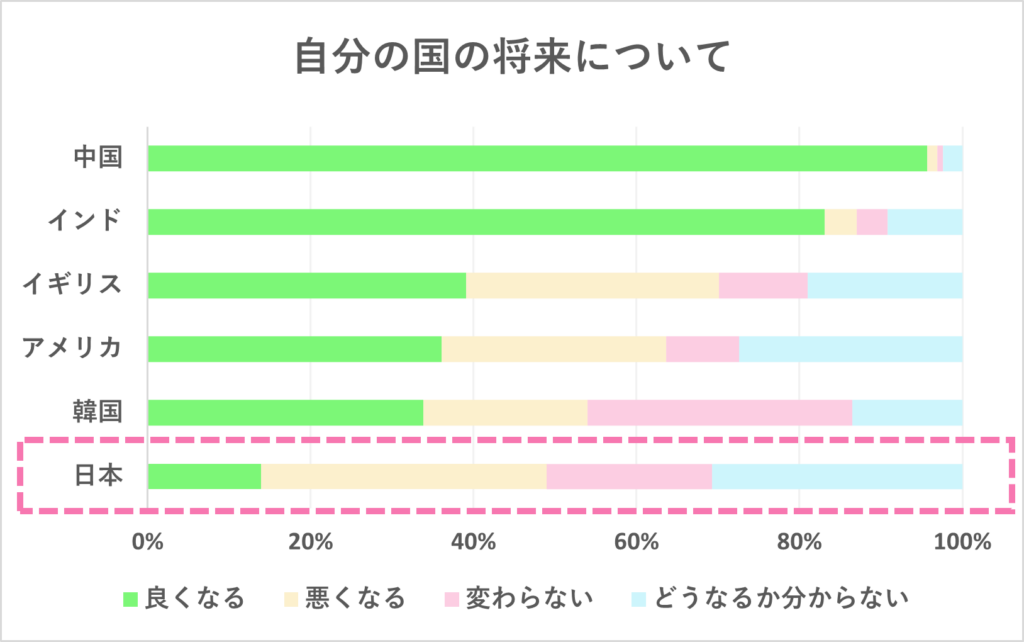
According to the Nippon Foundation’s “Survey of the Attitudes of 18-Year-Olds
According to the “18-Year-Old Attitude Survey,” an Internet questionnaire conducted by the Nippon Foundation targeting 18-year-olds, Japanese youth ranked last in two categories: “I want to try many new things even if it involves some risk” and “I want to achieve high goals even if it involves some risk. This indicates that Japanese youth are reluctant to take on challenges.
It is also clear that Japanese youth in the target countries answered “better” the least and “worse” the most in the “about the future of my country” section. This indicates that young people have little hope for the future of Japan.
Thus, Japanese youth are reluctant to take on challenges and pessimistic about the future.
VISION & MISSION
We are working with the following vision andmission to change Japan, where many young people are conservative and pessimistic about new things.


